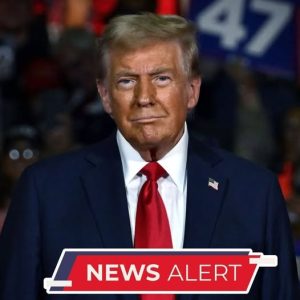In a recent and controversial move, former U.S. President Donald Trump signed an executive order aimed at combating anti-Semitism and addressing what the administration sees as growing pro-Palestinian sentiment on U.S. college campuses. Signed in late January 2025, this executive order carries significant implications for international students, especially those involved in protests perceived as anti-Israel. Under this directive, international students participating in such demonstrations—particularly those supporting groups like Hamas or expressing anti-Israel views—could face deportation.
The executive order expands on the Trump administration’s broader strategy to crack down on campus activities that are believed to support terrorist organizations or promote anti-Israel rhetoric. It is part of the administration’s ongoing effort to protect Jewish communities and prevent what it views as the endorsement or encouragement of terrorism within the U.S. By targeting international students, who typically hold temporary visas, the order enables federal agencies to take immediate action against non-citizen protesters suspected of involvement in such activities.
The key provision of the order mandates that federal agencies identify international students involved in these protests, assess whether their actions demonstrate support for organizations like Hamas, and potentially revoke their student visas. The administration justifies these actions by referencing existing immigration laws that allow for the deportation of non-citizens who “endorse or espouse” terrorist organizations. By associating participation in pro-Palestinian protests with support for groups like Hamas, the order provides a legal framework for swift government action against those believed to sympathize with organizations labeled as terrorist groups by the U.S.
The impact on international students is profound, raising concerns about freedom of speech and expression while sparking debates about the extent of government intervention in campus activities. Critics argue that this executive order could criminalize legitimate political expression, particularly for students protesting policies they see as unjust. They contend that this move threatens to silence dissent and undermine academic freedom, a cornerstone of the American education system.
Supporters of the order, however, defend it as a necessary measure to protect national security and combat anti-Semitism. They argue that a strong stance against groups like Hamas sends a clear message that violent extremism will not be tolerated within U.S. borders, especially on college campuses, which have historically been centers of political activism and debate. The administration also emphasizes the importance of ensuring that foreign students respect U.S. laws and values.
The decision to focus specifically on international students has sparked considerable debate. Many view it as an infringement on the rights of those coming to the U.S. to pursue education and engage in political discourse. Critics worry this could lead to fear and self-censorship, especially among students from the Middle East, who might feel unfairly targeted because of their political beliefs.
Beyond international students, the broader implications of the executive order point to increased government involvement in regulating campus political activities. While the order directly affects non-citizen students, its ripple effects may influence how political activism is conducted on campuses nationwide, potentially leading to greater surveillance and scrutiny of student protests.
As the executive order begins to be enforced, it remains unclear how federal agencies will implement it, how universities will respond, and how it will shape debates over free speech and political expression on American campuses. For now, many international students are left in uncertainty, as the U.S. government continues to balance its national security priorities with the protection of individual rights and academic freedom.
